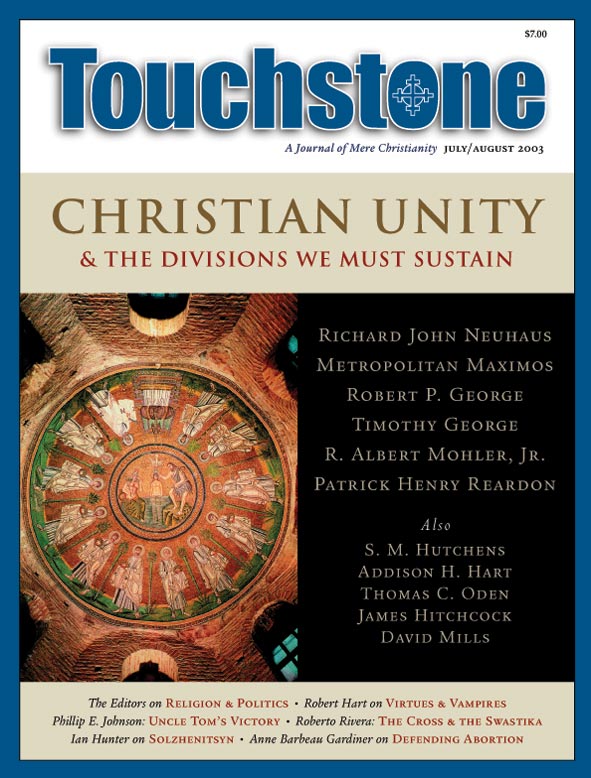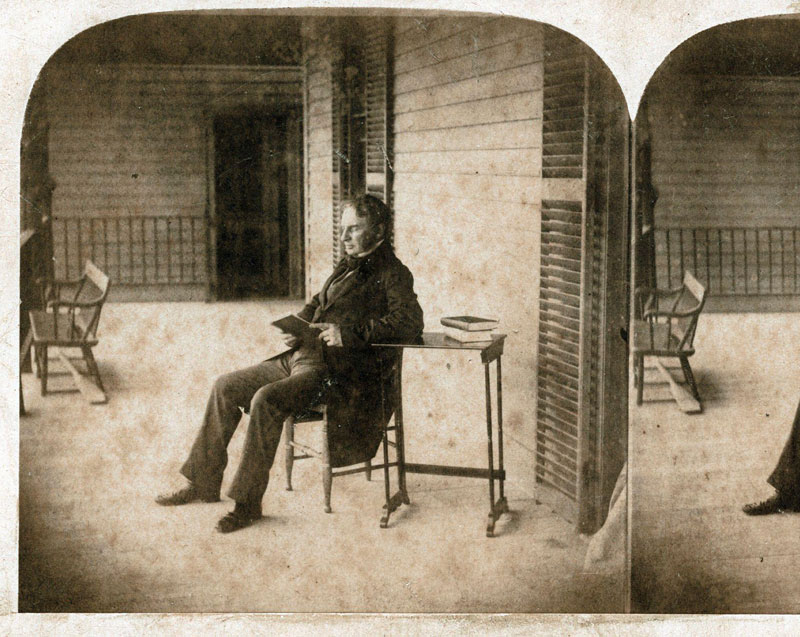Turning Our Hearts to the Fathers
The Orthodox Church & Christian Unity
by Metropolitan Maximos
The Eastern Orthodox Church is known for its liturgical tradition, in which God’s Holy Word is preserved, preached, and meditated upon. It is also known as the Church of the apostles and the Fathers. Moreover, it is known as the Church of the Seven Ecumenical Councils, each one of them preserving and defending the mystery of human salvation in Christ.
“Following the Fathers” is a favored expression, not only of the Fourth Council of Chalcedon (451) and that of Nicaea II (787), which formally used the expression, but also of the rest of the councils and Eastern patristic thought and spirituality.
The Fathers of the Church, Eastern and Western, are defined as those men of God who excelled in Christian life and devotion, as well as in theology. They are the authoritative interpreters of the Great Tradition of the Church, which includes the Holy Word of God treasured in the Holy Scripture, as kept, taught, lived, and experienced in the liturgical, devotional, and existential life of Christ’s Church.
The Fathers & Continuity
The Great Tradition of the Church is the Tradition of the Holy Spirit. The same Holy Spirit who inspired the authors of the Holy Scripture inspires the authors of patristic literature, the Fathers of the Church. The Spirit inspires them to keep the teaching they received and to keep the truth of God’s Holy Word and Christ’s preaching in the gospel in an authentic, unadulterated, and even primitive way. Thus, the Fathers are holy witnesses of the revealed truth. They are not just “testes antiquitatis,” but “testes veritatis.”1 According to St. Irenaeus of Lyons, through their “certain charism of truth,” the Fathers were the faithful keepers and transmitters of the “depositum iuvenensens” of Christ’s teaching in the context of the concrete, devotional, eucharistic, and sacramental life of the Church.
Is there a limit to the “patristic age”? For many Protestant scholars, it ended with the Council of Chalcedon (451). For others of a more “catholic” persuasion, it lasted to the Seventh Ecumenical Council (Nicaea II, in 787), or to the death of St. John of Damascus in the East (749) and St. Isidore of Seville in the West (636). For some Orthodox theologians, like Fr. Georges Florovsky, the patristic age includes such great theologians as St. Maximos the Confessor (the theologian of the Sixth Council) and, during Byzantine times, St. Symeon the New Theologian (eleventh century) and St. Gregory Palamas (fourteenth century).
I agree with Father Florovsky. The Church continues to be alive, which means that the Church continues to produce such Fathers. From this point of view, the patristic era has never ended. Yet Father Florovsky deplores what he calls a “Western captivity” of Eastern theology. He deplores a pseudomorphosis (false education), which theological students from the East acquired in Western schools, both Roman Catholic and Protestant. He advocates a “return to the Fathers” in terms of “scholastic” theology (“theology of the schools”).
However, the piety of the Church and its spirituality continue to be fed by the spirituality of the Fathers, through publications like Philokalia (the love of beauty), through which the patristic age continues to feed the devotional life of the worshiping community of the Eastern Orthodox Church.
The Great Tradition of the undivided Church is characterized by more than antiquity. It is also characterized by the continuity of truth and faith, which faith is ultimately the very faith of Christ himself. Three Fathers spoke eloquently to this point.2 St. Vincent in his Commonitorium established that catholic (Orthodox) truth is “what has been believed at all times, everywhere, and by all.” St. Cyprian remarked that antiquity without truth is just “the old age of error.” And St. Irenaeus contended that “the charism of truth” was the characteristic of authentic teachers of the gospel in Rome and the other apostolic centers of Christendom. It is this charisma which the bishops of the Church received in the context of their ordination during the Eucharist of the Church, in continuity with the apostolic community, and which context was later termed apostolic succession.
subscription options
Order
Print/Online Subscription

Get six issues (one year) of Touchstone PLUS full online access including pdf downloads for only $39.95. That's only $3.34 per month!
Order
Online Only
Subscription

Get a one-year full-access subscription to the Touchstone online archives for only $19.95. That's only $1.66 per month!
bulk subscriptions
Order Touchstone subscriptions in bulk and save $10 per sub! Each subscription includes 6 issues of Touchstone plus full online access to touchstonemag.com—including archives, videos, and pdf downloads of recent issues for only $29.95 each! Great for churches or study groups.
Transactions will be processed on a secure server.
more from the online archives

24.6—Nov/Dec 2011
Liberty, Conscience & Autonomy
How the Culture War of the Roaring Twenties Set the Stage for Today’s Catholic & Evangelical Alliance by Barry Hankins
calling all readers
Please Donate
"There are magazines worth reading but few worth saving . . . Touchstone is just such a magazine."
—Alice von Hildebrand
"Here we do not concede one square millimeter of territory to falsehood, folly, contemporary sentimentality, or fashion. We speak the truth, and let God be our judge. . . . Touchstone is the one committedly Christian conservative journal."
—Anthony Esolen, Touchstone senior editor









